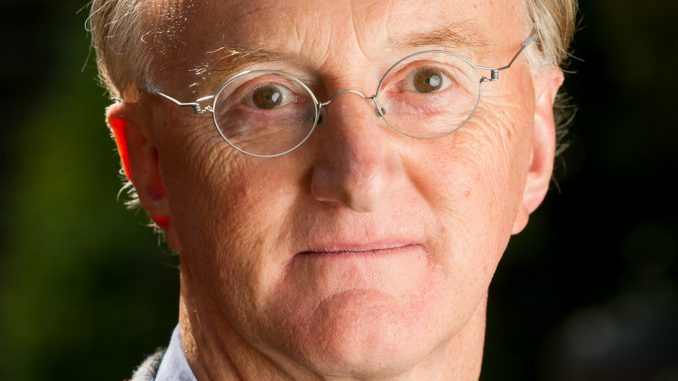
This is the most remarkable health and economic crisis of my lifetime and the pace of change in the past weeks has been disorientating. On an individual level, this can be unsettling and frightening, and members of my family have been directly and severely affected. For research organisations like ours it also creates a new opportunity, and indeed necessity, to initiate and to innovate.
At the end of March this year, I updated you on how the NIHR has paused all research at NHS and social care sites that is not addressing Covid-19, and how at the NIHR ARC South London, we are rapidly re-focusing our applied research to respond directly to the immediate pandemic and its longer-term implications. I can now report that just four weeks later we have over 40 projects being undertaken by ARC staff to understand the impact of Covid-19 on individuals, communities and populations in south London, and beyond.
I would like to briefly introduce just a few examples of these projects, all of which highlight the health and social care priorities that drive the ARC South London’s collaborative approach to research.
Our maternity and perinatal mental health research staff have started a project to understand how Covid-19 interacts with hypertension and other mental and physical co-morbidities during pregnancy, and to assess whether co-morbidity increases the risks for pregnant women with Covid-19. The team has also adapted an ongoing study to explore the impact of Covid-19 on mental health, domestic abuse, and drug and alcohol use during pregnancy. In related work they will be studying how community-based perinatal mental health services have responded to Covid-19, and reporting on the interpersonal and societal effects of Covid-19 for the wider maternity safety agenda.
Although many people survive Covid-19, an estimated 1% to 4% die from this disease. In this context, effective palliative care is vital to improve quality of life and care for patients, and to support family, and friends at the end of life. You can read about how the ARC’s palliative and end of life care researchers are responding to these challenges here. In addition, along with staff in other ARC themes, the palliative and end of life care research team have been connecting with colleagues both nationally and internationally on Covid-19 related projects. Last month, the team co-hosted a virtual meeting which brought together more than 30 specialists in palliative and end of life care from across the UK, including patient and public representatives, clinicians, academics, and charities to discuss the response to Covid-19. This meeting was initiated as part of the ARC South London team’s joint NIHR national leadership for palliative and end of life care research.
Clinicians across the country who are experienced at having to make difficult decisions about how care is prioritised, have perhaps never been under such pressure or scrutiny. Our public health and multimorbidity researcher theme staff have provided valuable expertise in this area, joining a pandemic ethics virtual group designed to offer guidance to NHS England on prioritisation decisions. The group has advised NHS England on a decision to temporarily close its bowel cancer screening programme to allow laboratory capacity to be directed at Covid-19 testing, and has provided technical advice and support to the Faculty of Intensive Care Medicine on new guidance for triage to intensive care units (ICUs).
More recently, the impact of Covid-19 on social care services has been brought into sharp focus. Our social care research team (based at the NIHR Health & Social Care Workforce Research Unit) are undertaking a wide range of work in this area. This includes a new study of the response of day centres for homeless people in south London during the Covid-19 outbreak. Continuing to provide services for homeless people is an essential aspect of social care during this emergency, and is an area where the crisis has in fact catalysed a huge and rapid rehousing programme never before achieved. The team expect that the results of this research will enrich their parallel study examining the resilience of day care services.
We know this pandemic has affected people in many different ways and has brought into stark contrast the inequalities in our society, for example in relation to digital exclusion. This month, the UK Parliament Women and Equalities Committee issued a public call for evidence on coronavirus and the impact on people with protected characteristics. In response to this, ARC South London organised an online community event earlier this week to gather experiences, evidence and to discuss these issues. Around 50 people took part, including individuals and representatives from a wide range of diverse backgrounds. We will share emerging findings from this event next month.
Across the whole of our ARC, researchers are rapidly initiating work that has, or soon will have, a direct impact on policy, professional guidance, bringing diverse voices into the public debate. It’s vital that in our drive to tackle this destructive disease, we continue to draw on our strengths – namely our ability to undertake research that can have a direct impact to support better patient and client outcomes in health and social care, and to support policymakers, planners, care staff, patients and clients with the best available evidence on how to act to minimise the impact of Covid-19.
Thank you to everyone for your continued high level of collaboration and your strenuous contribution to this local, national and global effort. I know that many of you have been personally affected by this disease. Let’s keep supporting each other. I hope that you, your family, and your colleagues stay well.
Professor Sir Graham Thornicroft,
Director of NIHR ARC South London
Contact details and biography

Leave a Reply